Fertilizing herbs is easy, and helps to keep them thriving and looking great. In this post, I’ll talk about different types of herb fertilizer, and which are the best. Then I’ll show you when, how often, how much, and exactly how to fertilize herbs.
One of the best things about herbs is that they are very low maintenance plants. Which means they don’t require a ton of care.
So don’t be intimidate by the thought of fertilizing herbs, it’s really not that difficult and doesn’t take much time!
In this detailed herb fertilizer guide, I’m going to break it all down, and make this super easy for you.
Do Herbs Need Fertilizer?
Herbs are not heavy feeders, so you don’t need to fertilize them as often as other plants in your garden. But they do benefit from a feeding now and then, especially in containers.
Herbs in containers will require more fertilizer than those in the garden. That’s because nutrients are flushed out of the pot every time you water. And containerized herbs have no way to replenish the nutrients they use up.
Related Post: How To Grow Herbs At Home
Best Fertilizer For Herbs
The best type of fertilizer to use for herbs is one that is rich in nitrogen, which will encourage vigorous leaf growth. Stay away from those that are higher in phosphorus, as that will encourage blooming
Also, it’s always best to use natural products, rather than chemical ones. They are not only healthier for us, but they’re much better for the plants too.
Synthetic fertilizers strip the soil of its natural nutrients, which is not good for the long term health of the plant. Plus, it’s way too easy to overuse them, which can damage plants and cause fertilizer burn.
Organic products work with nature, adding a wealth of rich nutrients to the soil and the plants. There are tons of wonderful options for organic herb fertilizer on the market these days, and they are all super easy to use.
Slow Release Granules
Granular fertilizers release nutrients into the soil over time. They aren’t immediately available for absorption, but they do feed herbs longer. So you don’t need to apply them very often.
Here are my favorite types of granules I use to fertilize herbs…
- Organic granules
- Natural compost (commercial or homemade)
- Earthworm castings
- Composted manure
- Root zone feeder packs
Liquid Fertilizers
Water soluble fertilizers can be absorbed quickly, so they’re great for giving herbs a quick boost of nutrients. But they don’t last as long as granular types, so they need to be applied more often.
Here are some excellent options of liquids for fertilizing herbs…
- Liquid kelp seaweed
- Compost tea concentrate
- Worm castings tea
- Compost tea bags
- Fish emulsion
When To Fertilize Herbs
You can fertilize herbs any time during the day, but never feed them if they are drooping or stressed. Fertilizing herbs that are under stress can severely damage, or even kill them.
So always be sure to check to make sure the soil isn’t dried out before feeding. If the soil is dry, or the plant is drooping, then give it a good drink of water several hours in advance.
How Often To Fertilize Herbs
Herbs don’t need to be fertilized very often, so don’t stress over following a strict regimen. For best results, always follow the instructions on the label.
But in general, granules only need to be applied once or twice during the season. Add them to the soil at planting time, and then again maybe once more in the middle of the summer.
Liquid fertilizers can be applied more often, but don’t overdo it. Apply them once every 2-4 weeks for herbs in pots, and about every 4-6 weeks for herbs in the ground.
How Much Herb Fertilizer Should You Use?
The exact herb fertilizer ratio varies depending on if they’re in the ground or in pots. It also depends on the type of herb fertilize you’re using.
Your first step should always be to read the label on the package. It should tell you how much to use for fertilizing herbs in pots -vs- the garden.
How To Fertilize Herbs
The exact steps for how to fertilize herbs depends on whether you’re using granules or a liquid. Always read the label for exact instructions, but here are some general guidelines…
- Fertilizing herbs using granules – Sprinkle the recommended amount evenly around the base of your herbs. Mix it into the soil using a hand rake, taking care not to disturb the roots. Water the soil to activate the granules.
- Feeding herbs with liquid fertilizer – Mix the recommended amount with water in a watering can. Then slowly pour it over the top of the soil around the base of the plant.
Fertilizing herbs isn’t required, but it will help them flourish, and look great too. Once you get the hang of it, you’ll see just how easy it is. And you’ll know exactly what to look for in order to buy the best organic fertilizer for herbs!
More Herb Gardening Posts
- 11 Easy Herbs To Grow In Your Garden
- 15 Perennial Herbs To Grow In Your Garden
- How To Preserve Herbs Fresh From The Garden
Share your tips for fertilizing herbs, or your favorite fertilizer for herb gardens in the comments below.
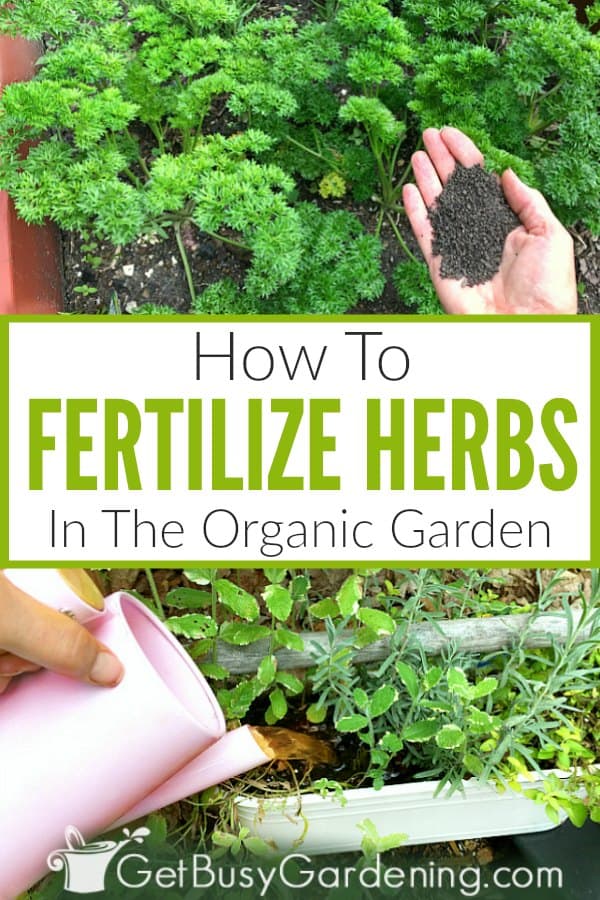
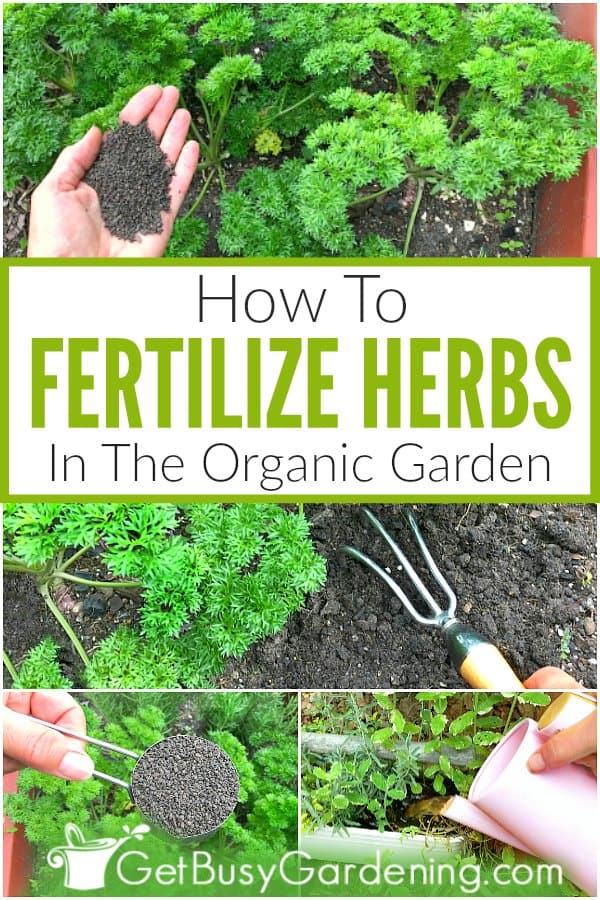
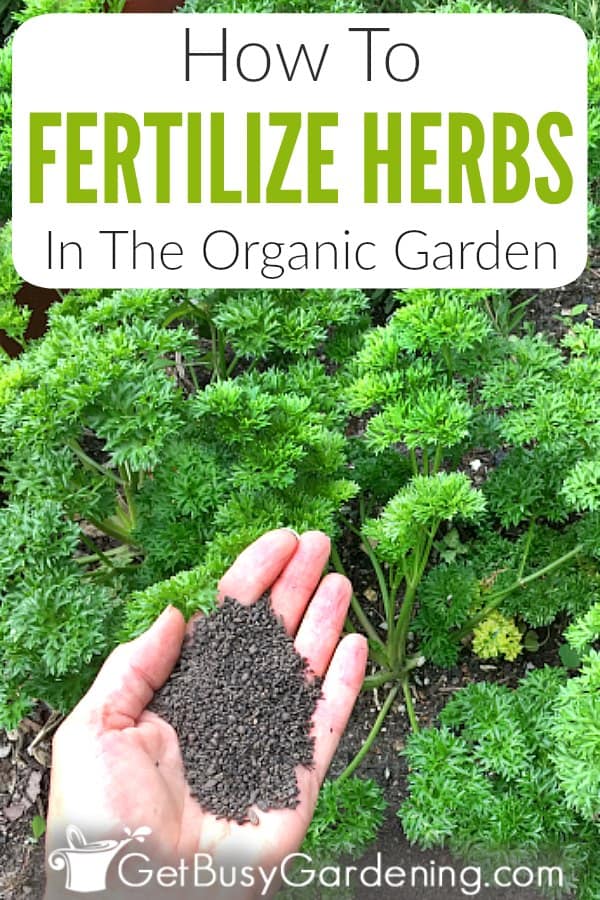
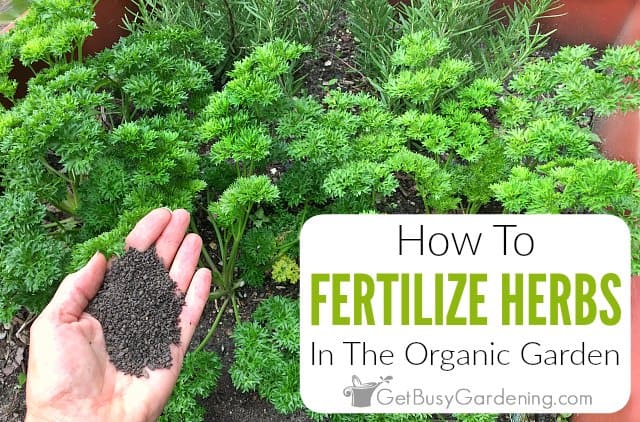
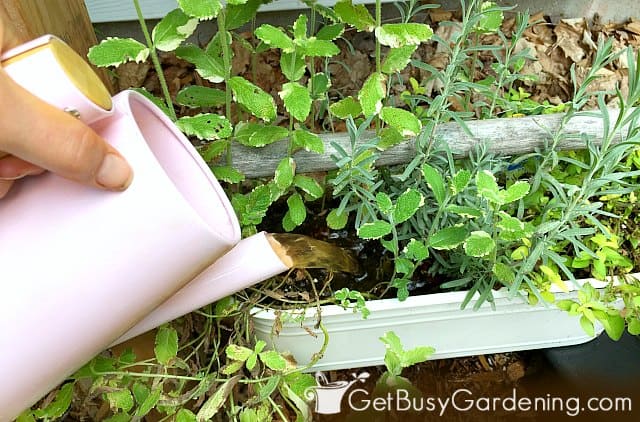
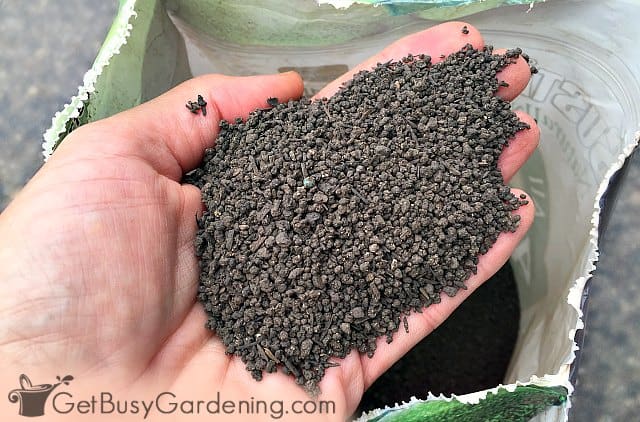
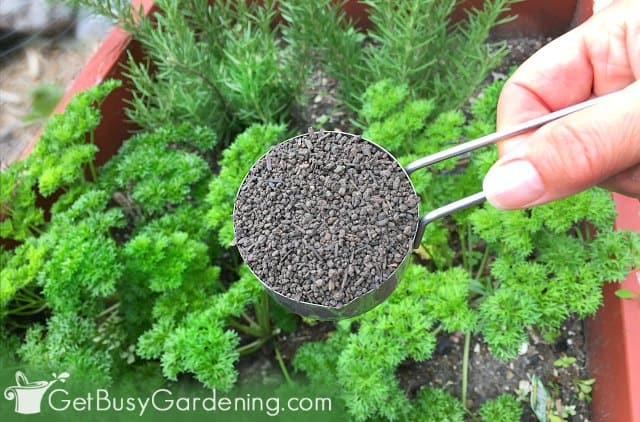
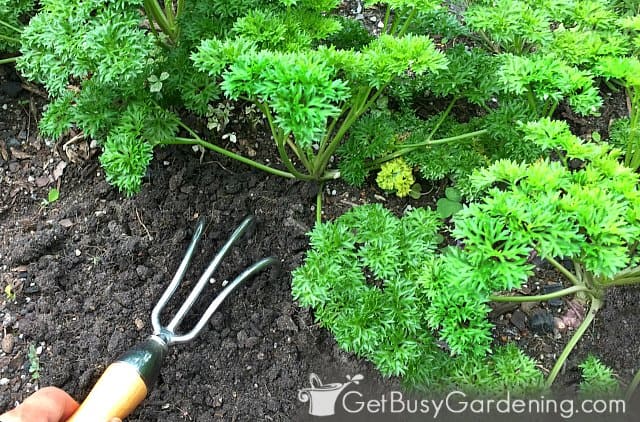

alex says
Didn’t know this was a thing, very helpful !! I think me and the wife will start implementing this
Amy Andrychowicz says
Awesome! Happy to help.
Bill Fritch says
Coffee grounds are a good fertilizer for herbs.
Amy Andrychowicz says
Awesome, thanks for sharing.